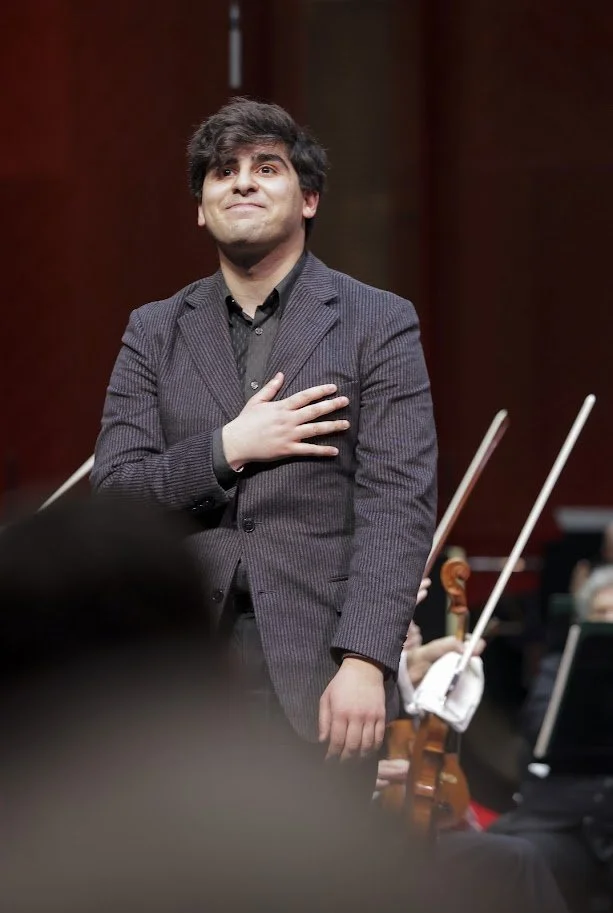Cliburn Finals: Sham, Wang, Ozel
Photos by Ralph Lauer and Brandon Wade
—Wayne Lee Gay
June 3, 2025: Finalist Aristo Sham of China, 29, emphasized the virtuosic qualities of Mendelssohn's Piano Concerto in G minor to open the Final round of the Seventeenth Van Cliburn International Piano Competition—joined by conductor Marin Alsop and the Fort Worth Symphony Orchestra. This work from 1831 definitely falls in the early romantic category; performances these days tend to emphasize the early part of that label, but Sham—with clear support from conductor Alsop—leaned into the romantic aspects of the work. In general these days, orchestras use a reduced string section for Mendelssohn concertos; Alsop and Sham (presumably in mutual agreement) opted to call up the FWSO’s full entourage of strings, as opposed to the reduced orchestra we heard under conductor Carlos Miguel Prieto in the in the Mozart concerto Semifinal phase of the competition.
And the romantic approach worked beautifully: Sham utilized the full volume possibilities of the modern grand piano, achieving an admirably powerful effect. A light foot on the pedal and full force on the keys in the numerous rapid scale passages created a uniquely brilliant effect.
Sham notably escaped slipping into the trap of sentimentality to which the middle movement is susceptible (again, with obvious support for his approach from conductor Alsop). The cadenza in this movement was particularly well shaped, and the Finale became an exhilarating steeplechase for the piano, perfectly executed by Sham.
============
American Angel Stanislav Wang, 22, chose Beethoven's Piano Concerto No. 4 for the first of his two concertos in this round, immediately showing off a resonant tone and beautifully sculpted phrasing in the piano's initial entry. That same memorable theme returned with masterful majesty at the recapitulation, followed by the rippling scales and jewel-like trills of that movement's cadenza.
Wang and Alsop made the most of the dramatic conversation of the middle movement, with the severe orchestral proclamations answered by a dignified serenity from the soloist. In the final movement, Wang encapsulated the work's miraculous combination of serenity and joy in the marriage of both elements in the final moments.
============
American Evron Ozel, 22, dared to offer that most familiar of concerto favorites, Tchaikovsky's Piano Concerto No. 1, for the first of his two final round concertos. Ozel, however, slipped up in some of the obvious downsides of the work. A few missed notes near the beginning might be forgivable, and certainly doesn't impede the progress of a well-thought performance. Less forgivable is the uneven level of intensity Ozel exhibited. The opening chords rolled in majestically, but the subsequent sections were, while often wonderfully engaging, sometimes matter-of-fact.
The gentle flute solo that opens the second movement created a hypnotic entrance for Ozel, and he responded with a beautiful rendition of that magical Andantino. The final movement provided an excellent showcase for Ozel's technical prowess, but at times became little more than that.








